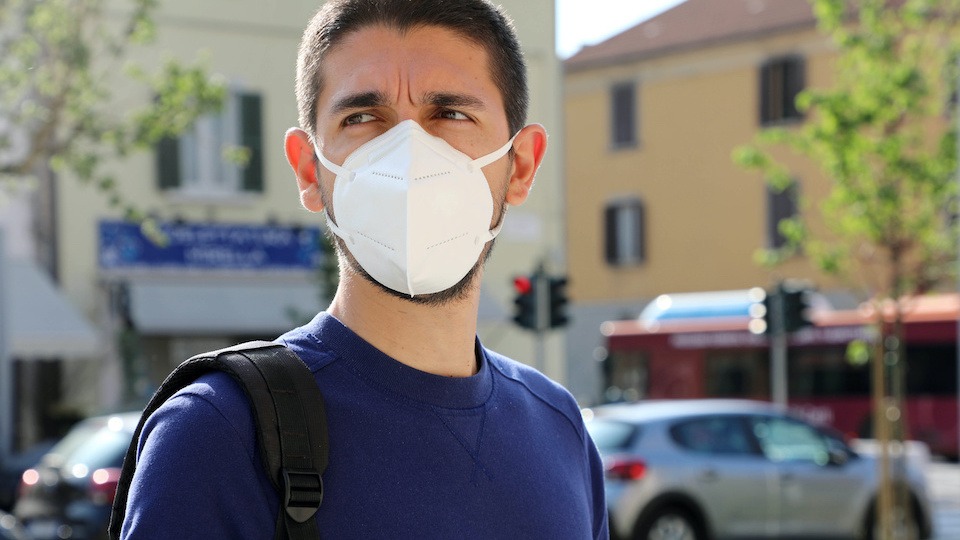If you’re lucky enough to have avoided the virus that is plaguing the world at the moment, you can consider yourself fortunate indeed. However, unfortunately, there are several other effects this pandemic could be having on your wellbeing.
Although you may test negative for the virus, chances are you’re suffering in other ways: poor sleep, chronic pain, and weight gain, to name a few. Here are some of the other serious dangers you could be facing, and how to stay healthy throughout this time of crisis.
Mental health
It’s totally normal to feel stressed and anxious right now. COVID-19 presents a threat to human health and the way we live. If you’re feeling anxious, your body and brain are responding to that threat exactly how they’re supposed to, by triggering the fight or flight response. This is especially challenging when this anxious energy has “nowhere to go” because sometimes there isn’t much we can do to change the status quo. However, taking ownership of elements over which we do have control, such as diet, exercise, and self-care, can be very helpful in restoring balanced mental health as much as possible while we ride out this crisis.
Other challenges that could arise include difficult emotions such as sadness, loneliness, and grief. Try reaching out to others and finding connection, which will help you feel supported through these experiences.
Immune system
When we’re stressed, the immune system’s ability to fight off illness is dialed down, leaving us more susceptible to infections. The stress hormone corticosteroid can suppress the effectiveness of the immune system. For example, the number of immune cells called lymphocytes could be reduced, weakening immune defenses.
Stress can also have an indirect effect on the immune system as a person may use unhealthy behavioral coping strategies to reduce their stress, such as drinking and smoking. Avoiding destructive choices and eating more foods that boost your immune system can help keep your immune defenses strong.
Inflammation
Researchers have found that chronic psychological stress is associated with the body losing its ability to regulate the inflammatory response. Inflammation is partly regulated by the hormone cortisol, and when cortisol is not allowed to serve this function, inflammation can get out of control. Prolonged stress alters the effectiveness of cortisol to regulate the inflammatory response because immune cells become insensitive to cortisol’s regulatory effect. In turn, runaway systemic inflammation can take hold – and if you weren’t aware, inflammation is now believed to be at the root of many leading causes of death.
Inflammation can be kept in check with good nutrition, exercise, and proper sleep to prevent any further negative effects.
Gut health
The relationship between environmental or psychological stress and gastrointestinal distress is complex and bidirectional: stress can trigger and worsen gastrointestinal pain and other symptoms, and vice versa. Many studies show that stressful life events are associated with the onset of symptoms or worsening of symptoms in several digestive conditions, including inflammatory bowel disease (IBD), irritable bowel syndrome (IBS), gastroesophageal reflux disease (GERD), and peptic ulcer disease.
Relaxation practices and psychotherapy, such as cognitive-behavioral therapy (CBT), have been proven to help people calm the sympathetic nervous system and reduce reactivity to stress, soothing gut health as a result.
Blood pressure & heart health
Stress can have the effect of raising blood pressure. Hypertension, which is characterized by consistently raised blood pressure over several weeks, is a major risk factor in coronary heart disease.
Stress also produces an increase in blood cholesterol levels through the action of adrenaline and noradrenaline on the release of fats in the bloodstream. This produces a clumping together of cholesterol particles, leading to clots in the blood and clogging of the arteries. In turn, raised heart rate is related to a more rapid build-up of cholesterol on artery walls. High blood pressure results in small lesions on the artery walls, and cholesterol tends to get trapped in these lesions, contributing to cardiovascular illness.
Practicing relaxation techniques, getting enough exercise to keep blood pressure in check, and eating an anti-inflammatory diet, can help prevent these damaging effects on heart health.
How to stay healthy through the COVID crisis
Social distancing, frequent hand-washing, and taking vitamin C are some of the oft-repeated basic steps toward protecting yourself from getting the virus. But there are many other health effects you could be facing even if you’re virus-free. Try integrating some of these self-care practices into your daily routine to protect your wellbeing, including your mind, body, and soul.
- Get daily exercise for stress relief
- Eat an anti-inflammatory diet to protect your body
- Practice healthy sleep routines to maintain mental health and strengthen the immune system
- Make time to relax: if you’ve never tried meditation, now is a good time to start
- Get support and connect with others
A few healthy habits can help you remain resilient so you can ride the wave of this crisis and be well on the other side.
-The UpWellness Team







